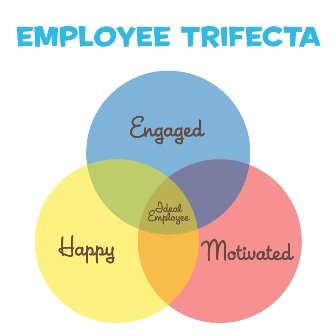The World Works Too Much - Life Would be Better With More Time Off

I think France is on to something. Their approach to work-life balance seems more in line with the way all industrialized societies should function. The average person receives 30 vacation days per year and works a grand total of 1,007 labor hours. Taking into account vacation time, this would put the average work week at about 22 hours per week.
Take into account the work done by K. Anders Ericsson, a well respected researcher in the psychology of work. His studies have proved out that the normal worker stops being productive after 4 or 5 hours of concentrated effort. Beyond this their productivity wanes.
32 Hour Work Week
There is some anecdotal evidence that shows cutting back the work week to 30-32 hours makes for more productive and happier employees. Take the case of a technology company named Treehouse. Their CEO, Ryan Carson, changed the work week to 32 hours some years ago. Here is what he had to say about the switch:
“There’s no rule that you have to work 40 hours, you have to work more to be successful,” says Carson. “We’ve proven that you can take it from an experiment into something that’s doable for real companies and real people in highly competitive markets. It's not about more family time, or more play time, or less work time — it's about living a more balanced total life, we basically take ridiculously good care of people because we think it's the right thing to do."
Treehouse is able to compete for tech talent against the likes of google because they pay a full salary and full benefits to their employees, while requiring 32 hour work weeks.

Four Day Workweek
The other train of thought is that cutting the work week to 4 days, versus the current norm of 5 days/week, boosts worker productivity and morale. The drawback is more hours per day at the office, to offset the shortened work week. The thought is that knowing that the employee has the extra day off in the week causes a rise in productivity. That has been proved out by state workers in Utah, who went to the four day week a few years back. The morale amongst the employees has been anecdotally shown to have increased.
In 2013, Reusser Design, a Midwest web development company, changed to a four day week with longer hours, the company CEO, Nate Reusser, raves about the effect the change made:
"Productivity and engagement have never been better. You wouldn't believe how much we get done," he told CNN last year, the policy motivates people to work harder, similar to how people hustle to finish projects before they go on vacation.

The four day work week has proven out by students as well as adults. Across the Western states, many school systems have adopted the four day week. In one study in Colorado the change had a positive effect on 4th and 5th grade students. After the change was implemented, math scores were up 12% and reading scores up by 6%.
Conclusion
Whether it be fewer hours in a week or fewer days in the week, companies that have implemented these policies have seen moral and productivity grow. These policies take into account that people need real work - life balance. That overworked, stressed and burnt out employees to create value to a company. It leads to greater turnover and crap moral.
.png)
http://www.businessinsider.com/every-weekend-3-day-weekend-2016-9
https://20somethingfinance.com/american-hours-worked-productivity-vacation/
http://www.businessinsider.com/why-we-should-have-a-4-day-work-week-2016-5
https://www.theatlantic.com/video/index/396527/case-32-hour-workweek/
I agree. There is more to life than work, and an increase in the amount of hours worked does not equal a better outcome. Rather the opposite.
However, I think it will be really difficult to implement impacting measures. Even though small and innovative companies are realising such changes, I think it will take at least a decade for established corporations to change their bulky operations and traditional mentality.
I agree with your analysis @restlesswanderer. Large corporations will do what they believe to be the most profitable. Change will not happen overnight. We have to start somewhere if we'd like to see change in the future. Starting a petition at work and/or talking about the subject with coworkers may get the ball rolling to some degree.